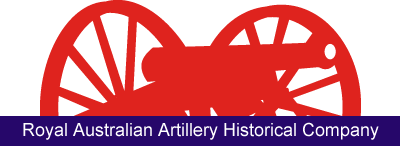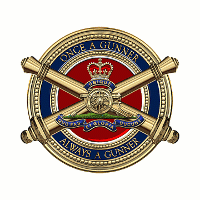| Graduating in December 1943 and allocated to the Royal Australian Artillery, he saw active service in Borneo with 2/6th Field Regiment AIF then went with A Field Battery to the British Commonwealth Occupation Force (BCOF) in Japan. He became a staff captain on Headquarters BCOF before returning to Australia in 1948.
After 18 months as a staff captain in Administration Branch at Army Headquarters, Captain Hooton was selected for a Long Gunnery Staff Course in the United Kingdom. Having married Mona immediately prior to embarking, they spent a most enjoyable two years in England whilst he studied field, anti aircraft and coastal artillery and was then posted for six months as the acting Brigade Major Royal Artillery (BMRA) on Headquarters 7th Armoured Division in Luneburg, Germany.
Returning to the School of Artillery at North Head, Sydney as an Instructor in Gunnery in May 1952, Joe excelled in passing on his overseas knowledge and experiences to two years of Gunner students. Promoted major, he was appointed BMRA on Headquarters RAA 2nd Division during 1954 before attending Australian Staff College in 1955. Major Hooton then returned to his 2nd Division appointment for another year. His enthusiasm matched that of the keen CMF Gunners and he was well accepted. The School of Administration and Tactics had been established at Seymour to qualify and instruct on current tactical and administrative doctrine for members of all arms and services. Major John Hooton was posted there as an instructor, but found ‘an excessive number of “9 to 5” civilians with too much authority who overruled decisions taken on sound military grounds’.
Promoted lieutenant colonel, Joe returned to Army Headquarters as the General Staff Officer Grade One in the Directorate of Military Training before being appointed commanding officer of 4th Field Regiment from January 1963. This was a time of training with the CMF as part of the Pentropic Division and Lieutenant Colonel Hooton was scathing in his honesty regarding capabilities. ‘The CMF was not capable of [achieving] three months notice to move because they were being trained by leftovers from WW2’; ‘There was a dropping of [Regular soldiers’] interest in military matters because of the time spent on administration’; and on 4th Field’s battery at seven days’ notice to move—‘quite incapable though they could have produced something [if required]’.
Joe Hooton was well qualified and experienced to command and held a very tight but happy rein as he endeavoured to bring a fledgling unit up to professional training standards. He had a determination to achieve and ‘liked every minute of being a CO’. Joe wasbeginning to make headway and lengthy exercises such as Sky High in November 1963 provided a good assessment of progress. However, in 1964, the loss of experienced people to the Australian Army Training Team and to Headquarters Australian Forces Vietnam as Australia’s commitment built up severely reduced the unit’s capabilities.
At short notice, Joe’s command came to an end when he was selected for the United States Armed Forces Staff College which began in June 1964. On completion of this six month course, Lieutenant Colonel Hooton was appointed the Intelligence Officer on the Australian Army Staff (Washington). This was a most enjoyable period of service with plenty of travel around the Americas. He became very enthused with intelligence work which was probably just as well for, on return to Australia in February 1967, Joe was promoted colonel and appointed Director of Military Intelligence.
Vale Brigadier John Gordon (Joe) Hooton CBE—astute professional Gunner, quality trainer and staff officer, firm and fair commander, and one of the Royal Regiment’s last Second World War Duntroon graduates. Gone to the Great Gun Park up above after 89 years of mortal service.
Arthur Burke OAM Colonel (Retired)
RAA History Sub Committee
|


